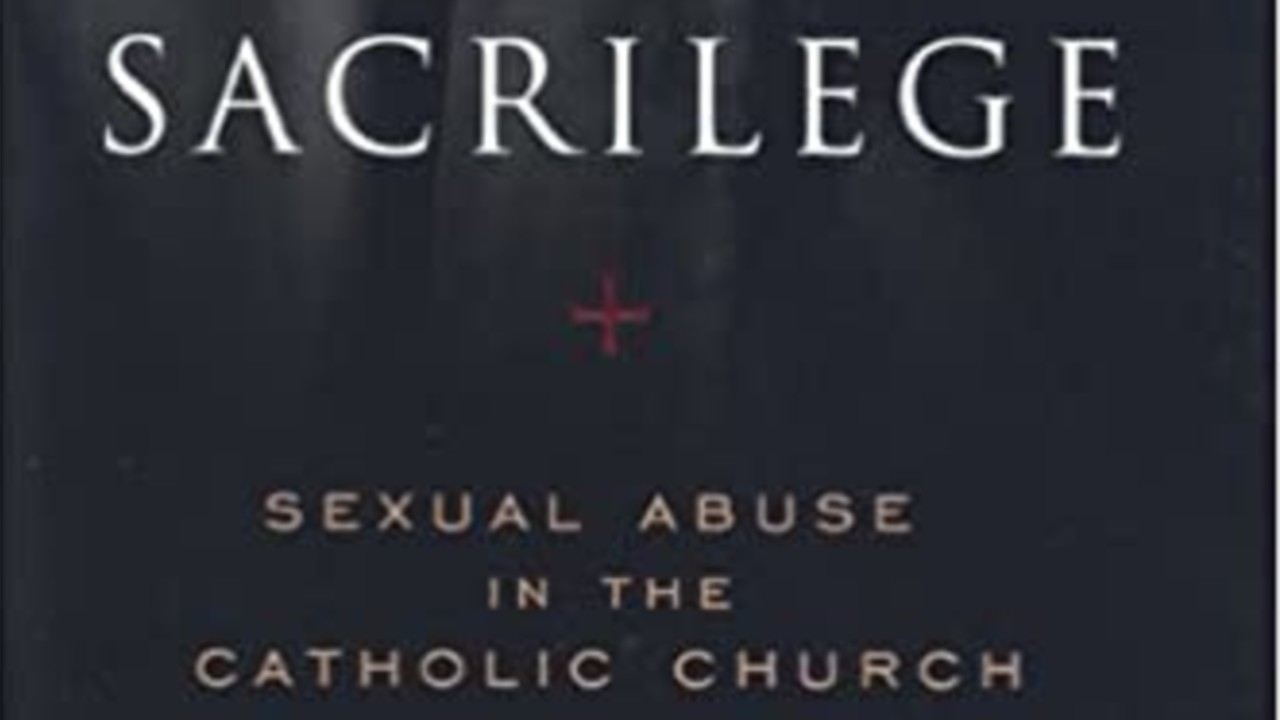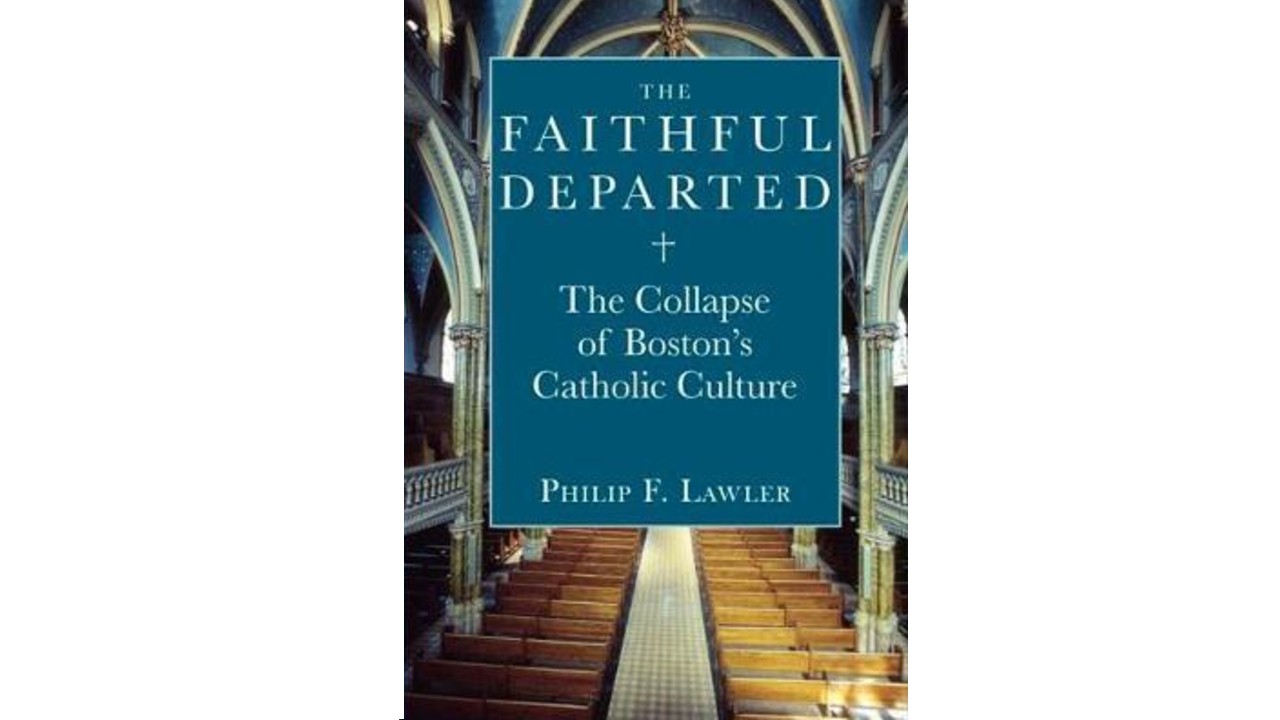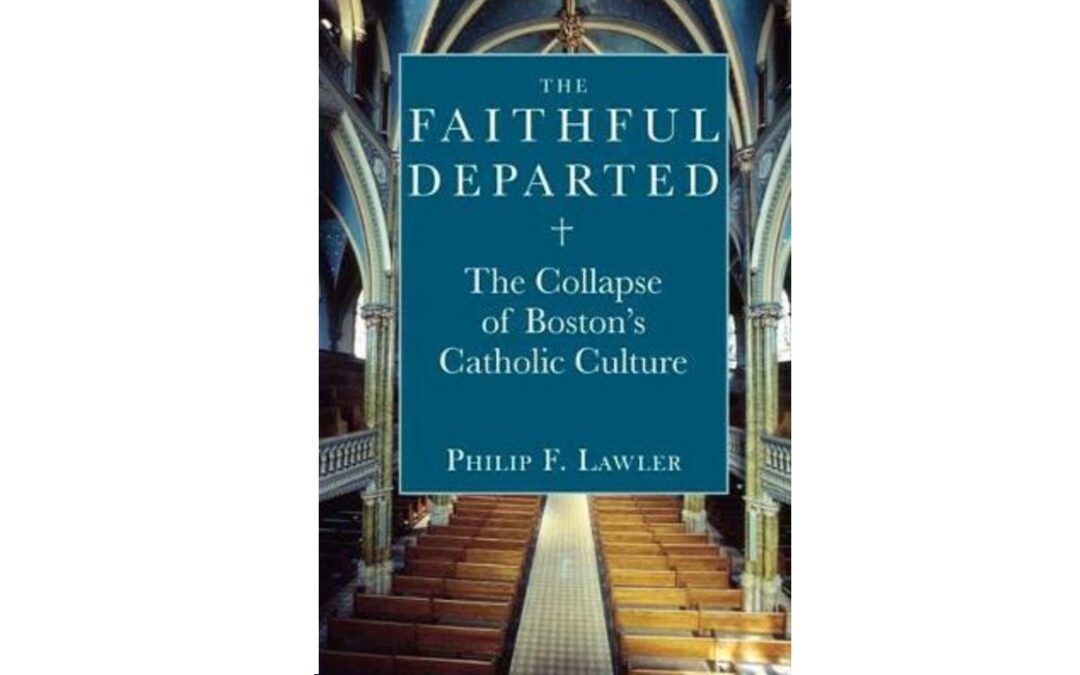
Book Review — The Faithful Departed: The Collapse of Boston’s Catholic Culture
It were better for him, that a millstone were hanged about his neck, and he cast into the sea, than that he should scandalize one of these little ones.
Luke 17:2
This book deals with the rise and fall of the Catholic Church archdiocese in Boston. It can so easily be a blueprint of other Catholic dioceses in the world or even non-Catholic Churches and Jewish synagogues. By the time of the sexual abuse allocations by evil priest in Boston, the scandals of abusive priests, the cover-ups by the bishops when it became worldwide headline news in 2002, the faithful Catholics who still adhered to the Church’s teachings, attending weekly Mass were very few indeed. I had jotted down two pages of notes for this review, working out how to keep it short. This book, The Faithful Departed, and I think is along with Mass Exodus by Stephen Bullivant which I have reviewed and posted here are two of the best books that explain how the Catholic Church is where it is today.
I thought to start, is to quote a couple of paragraphs in the introduction that address’s the abuse of the clergy:
The first aspect of the scandal, the sexual, the sexual abuse of children, has been acknowledged and addressed. The second aspect, the rampant homosexuality among Catholic priest, has been acknowledged and not addressed, and later even denied. As a result, the homosexual influence within American clergy is even stronger today then it was before the sex-abuse scandal erupted. But a third aspect of the scandal has never been acknowledged by the American Church leaders.
While a small minority of American priest has been involved on sexual abuse, a clear majority of bishops was a party to the cover-up. The priests who have also been found guilty of sexual abuse have been removed to the ministry, but the bishops who betrayed their own sacred trust by countenancing sexual abuse remain in office. Whereas the misconduct by priests has been acknowledged and addressed, the administrated malfeasance of America bishops has still not been acknowledged – at least not by the bishops themselves – and not remedied. For all those reasons the third scandal, the scandal of episcopal misconduct, is today the most serious of all.
As this crisis was raging, many faithful Catholics were naturally upset. Many bishops were totally indifferent or in denial, questions from victims were answered causing many to lose their faith. Yet after twelve years after this book has been published, little has changed. The Church, as the majority of the baptized members are aging, the faith in America could well go the way of Europe and the Commonwealth countries like Canada, United Kingdom, Australia and New Zealand and become a post Christian country.
Yet, all this didn’t just happen. From humble beginnings and persecutions, the Catholic Church in Boston rose to the extent it was one of the biggest in the country. Bishops could, with a word stop legalisation. It became very efficient, but then they became complacent. The Church forgot God’s grace as bishops were content to serve the existing Catholic population. They forgot the prime mission of the Catholic Church is to save souls. Some even saw the priesthood as a profession, not a vocation and a job for life.
Then there were the compromises. Bishops and the laity were seeing their faith as a private affair. So, with abortion a politician could be personally opposed to abortion, but… would be the start of the decline in faith and unbelief. So, by Vatican II in the 1960’s, the rot set in. The Latin Mass was replaced with a new Mass in the venular and other changes caused many priest and nuns to leave their vocations. Then there was opposition to the Churches stance to ‘the pill’ and contraception with many bishops, priest and the laity dissented and ignored the clear Church teachings of the grave sin for those who practice it. Few Catholics cared now, and priest never instruct it from the pulpit or teach it. Catechises also was downplayed from the 1970’s with many Catholics not knowing their faith. With the Baltimore Catechism (which was I was instructed with then becoming a Catholic in 2017/18) no-longer being used, feelings became more important than Truth. The Church ignored issues on abortion and the bishops could not be relied upon for support. With the bishops becoming more political and seeing themselves as community leaders, as I said forgetting the Churches prime mission is to save souls. When the cover-ups of the abuses which had been going on for decades, the bishops remaining silent and dissenting on issues of sexual morality; they could no-longer speak on issues if sexual immorality, divorce, premarital sex, unmarried Catholic couples living together, and of course the rise for the fight for so-called homosexual unions and marriage.
This makes for grim reading and just imagine Philip Lawler was feeling when he was writing this book. These bishops, these successors of the Apostles sacrificed the rights of the faithful to preserve the privileges of the hierarchy. So now what is to be done? In short, Catholic Christians will have to pick up the pieces start from the beginning again. They need to engage with the world, the bishops need to engage with the society. As Christian as America still may be, many people have never heard of the Gospel of Jesus coming to die for our sins, and those who repent and place their faith in Christ will be saved. It is simple as that. The Church is not some human social institution, we believe it was founded by Jesus Christ himself. But reform cannot come until the corruption is acknowledged. These two paragraphs in the final chapter of the book had a deep impact on me. The Church has had these problems before.
Eventually, as the Holy Spirit guides the Church, a worthy successor will arrive to lead the reform. Once again, the history of Catholicism furnishes enough examples of successful reform to bolster hope in even the grimmest of circumstances. When St. peter Canisius was sent to Vienna in 1552. For example, 90 precent of the city’s residents had abandoned the Catholic faith, and even among the remainder, most were not actively practicing the faith. Many of the city’s parishes had no pastor, and not a single priest had been ordained in twenty years. Yet the great Jesuit preacher rallied the faithful few, confronted the enemies of the Church, and led the restoration that made Austria a bulwark of Catholicism for centuries to come. Perhaps even now another great saint is waiting in the wings, ready to lead the Catholic restoration in Boston.
But restoration, if it does come, will not come without a cost. To restore vigor and discipline to the Church, Catholic leaders will be required to make personal sacrifices and unpopular decisions – and ask their followers to do the same. That is the mark of Christian leadership: the willingness to imitate the Sacrifice of Christ.
Yes, a call for martyrdom is something I am frightened to do. Yet, this is what I have signed up for as a Christian. Lawler points out that cardinals, the leading prelates of the Catholic Church traditionally wear red: the colour of blood; the colour of martyrdom. Even before converting to Catholicism in 2018, I knew we who practice our faith in Western countries like America, or in my case in Australia have never had it so easy. We don’t die or suffer for our faith like our fellow Christians do in Africa, the Middle East, China and Asia. We never want to come complacent. All this has happened as we in the West have become worldly. I am no different. I too often live as though God doesn’t exist. I hope God could give me the strength, at the very least, to be the light of the world and to do his will, in an increasingly hostile world. There are too many souls at stake.
Author: Philip Lawler
Minimum Age: 16+
Type of Book: Social Issues/Catholic Church
Book Length: 272
Published: 2008
Note: Philip Lawler has written two more books with have brought it up to date, the current state of the Catholic Church, both published in 2018. Nothing has changed.
My review of Lost Shepherd which I posted recently:
Chadwick Medel wrote a review of The Smoke of Satan, posted in the middle of 2020:
https://www.coffinnation.com/forum/books/the-smoke-of-satan-review/
Note: This post was written by Carl Strehlow, a valued member of Coffin Nation.
____________________________________________________________________________________________________________________________________
Tweet to Patrick HERE
Follow Patrick on Facebook HERE
Subscribe to the Podcast and the YouTube Channel
(Click on the images and then click on subscribe)
Apple/Mac Users:
Android Users:
Subscribe to the YouTube Channel:
While you are there, please leave an honest review.
Ratings and reviews are extremely helpful










Comments